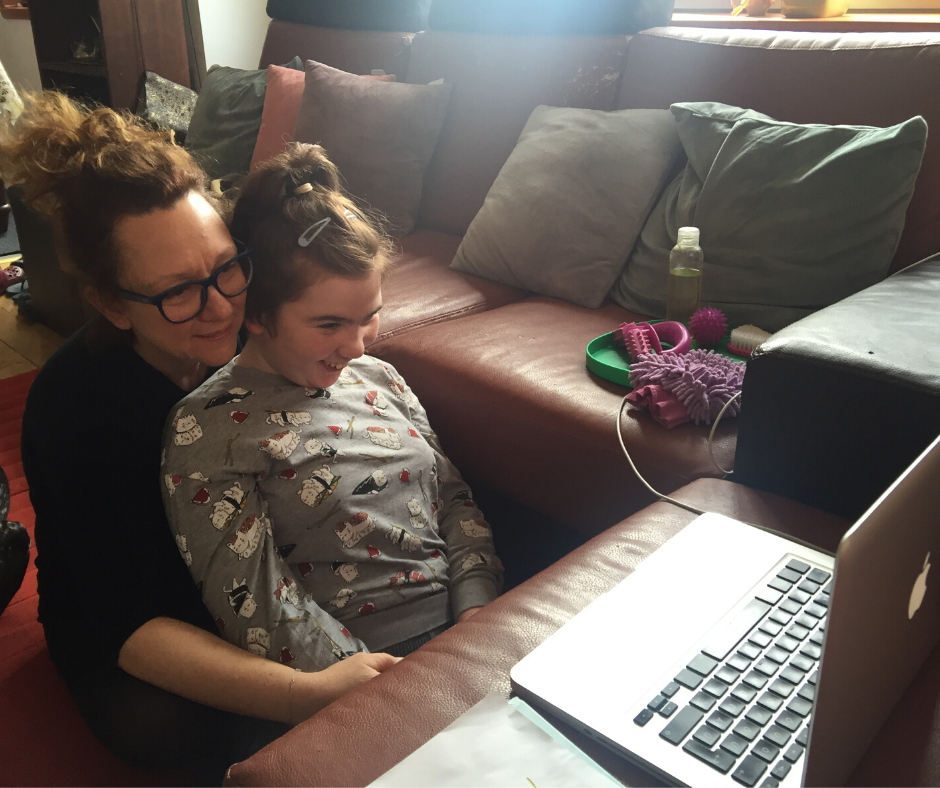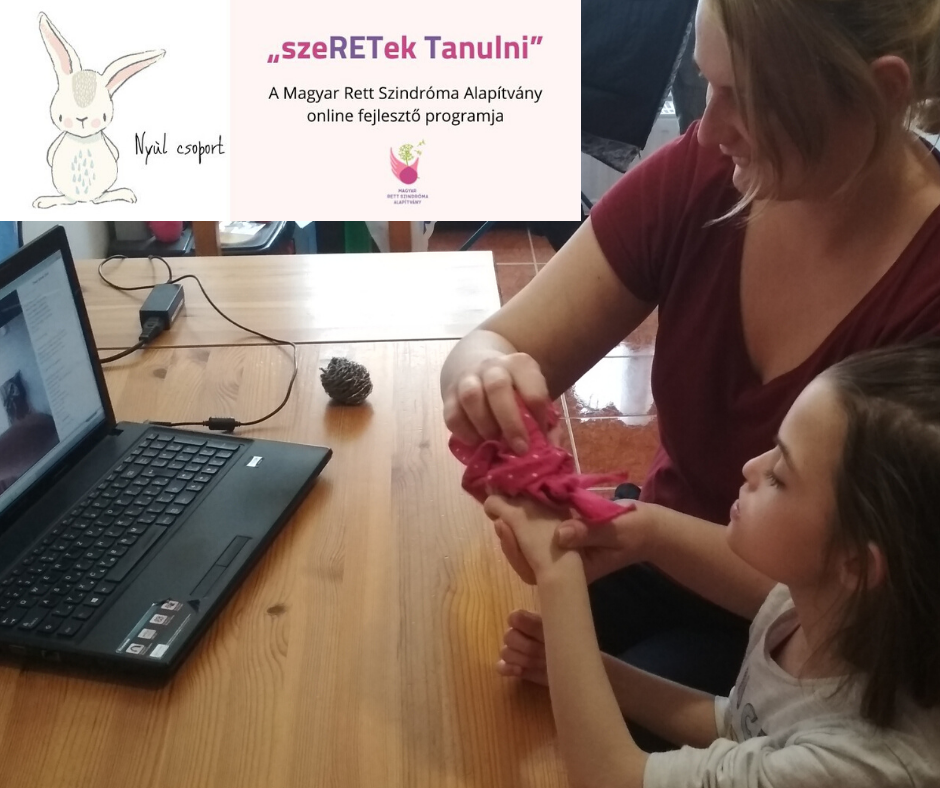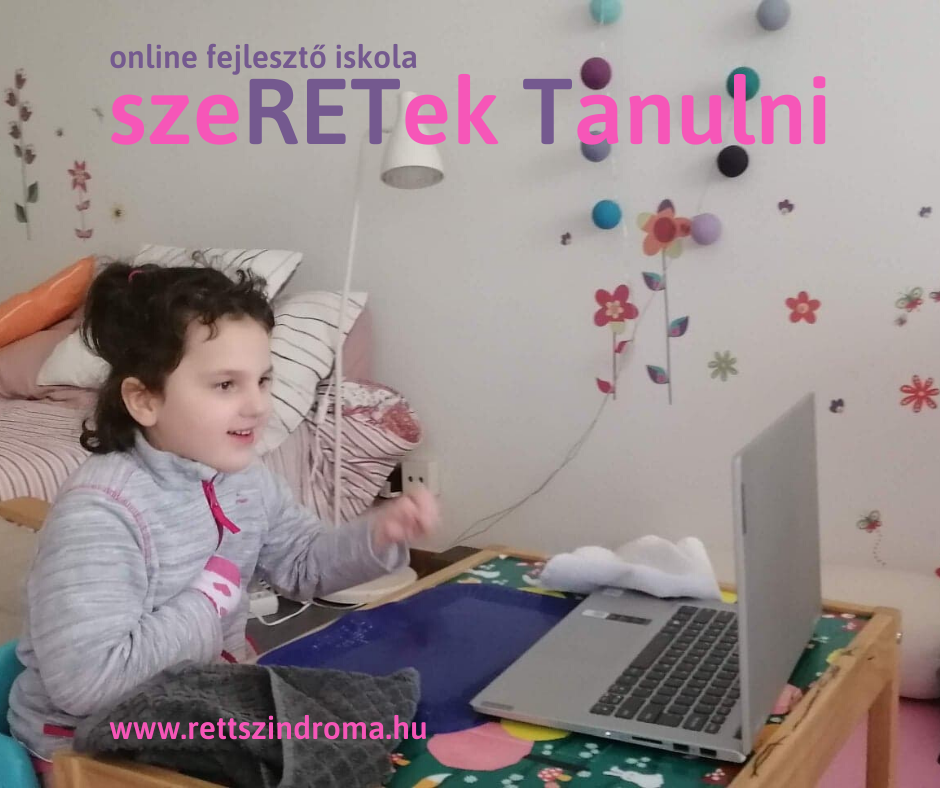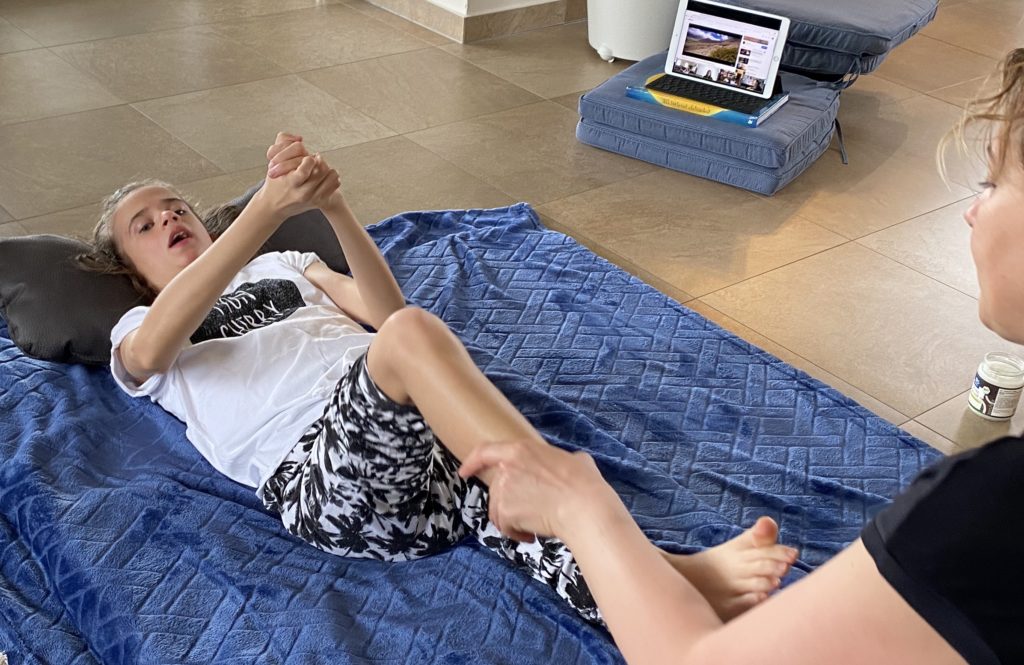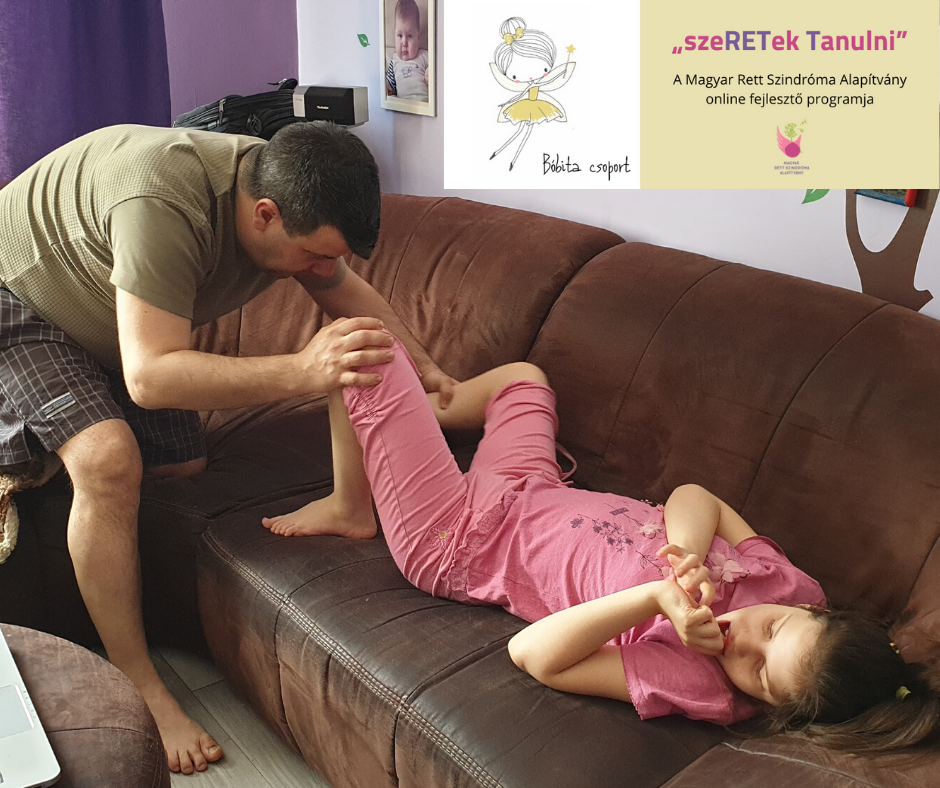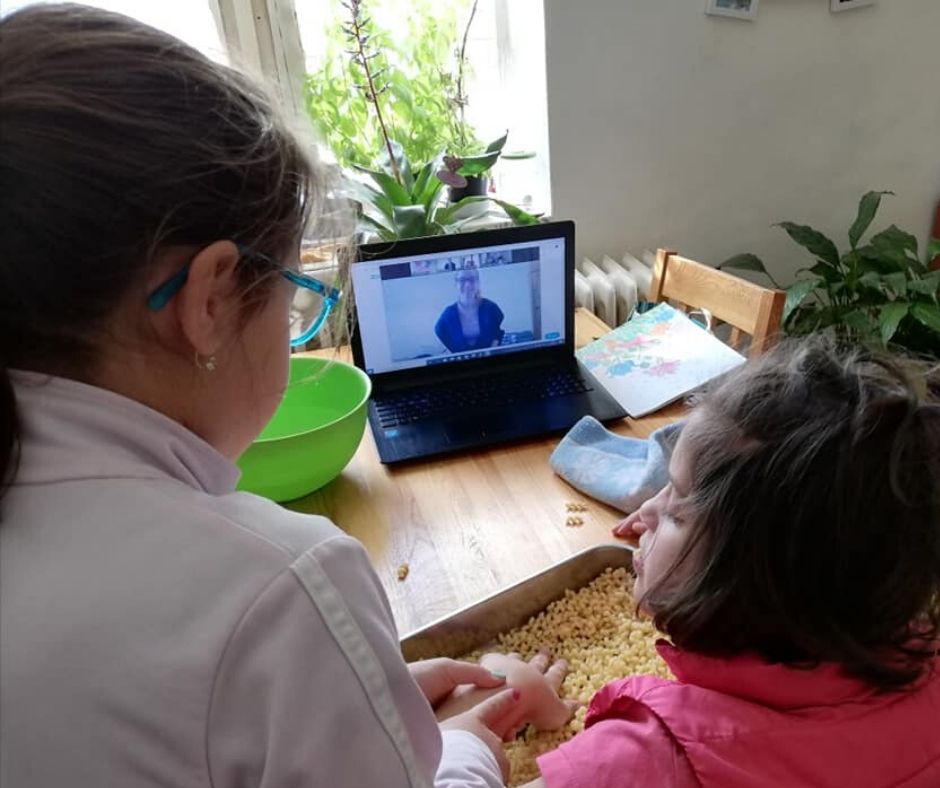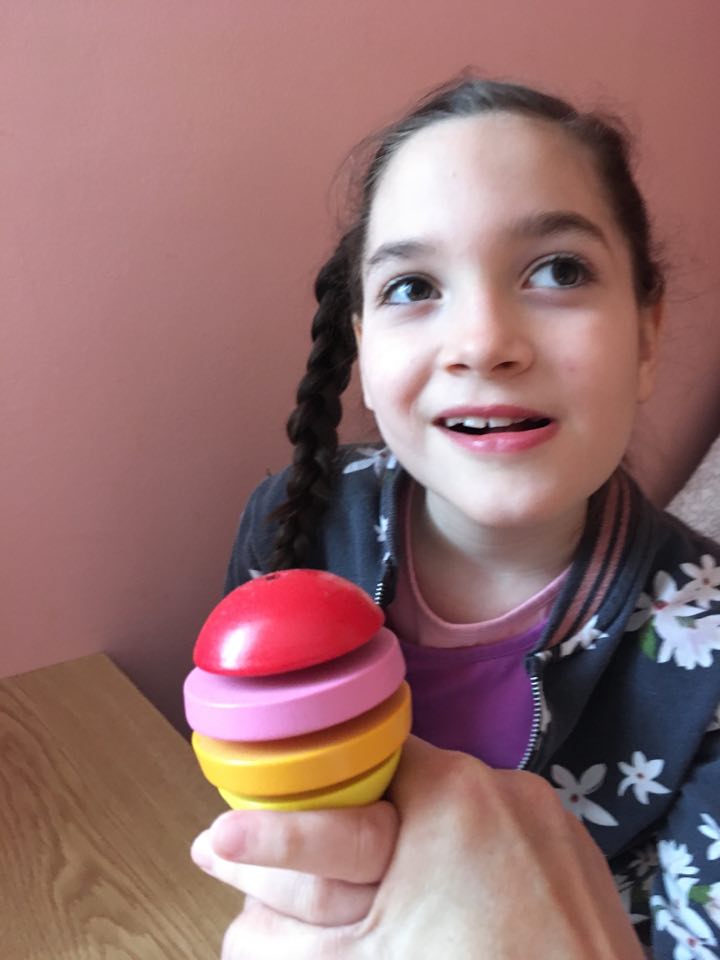RSE is always happy to share good practices of our member associations. This time we are very pleased to share the initiative carried out in Hungary during these difficult COVID-19 times.
In Hungary, schools – including special schools – have been closed since 16 March due to the coronavirus pandemic. This situation has put all families in a difficult situation. Schools had to switch to digital education very fast and this was very difficult to achieve properly for many schools and families. The situation was even more difficult in the case of special need children.
What can I do as a parent at home alone? What therapies should I do with my child? What tools should I use? How does my child react to this new, unusual situation?
The active members of the Hungarian Rett Syndrome Foundation, who are themselves affected mothers, immediately assessed this difficult situation and began to think about how to help other parents. This is how the „szeRETek Tanulni” (it means ’I like learning’) online school for girls with Rett syndrome was born.
In about a week, the team made of special need teachers, organized lessons adapted to Rett syndrome individuals needs using the online platform. Five special educators have joined the program, holding live online classes in the mornings and afternoons of the weekdays. Girls perform tasks in their own homes with a parent, sibling, grandmother, or their assistant. Teachers write to the group the day before about what kind of tools they need for the next lesson, what needs to be prepared. These are tools and toys that can usually be found in each household.
At the start of the program, the organizers were also uncertain about how the girls would accept this form of learning where they don’t meet the therapist in person but only see it on a monitor and the assisstent at home performs the tasks with them. To everyone’s delight, the kids responded very well, they immediately understood the new situation and that they could now meet the others this way. There are students in big cities like Brussels, Vienna, Budapest, and there are also those sitting in front of the monitor in Mosonmagyaróvár, Pécs or a small village.
So far, 20 families have joined the program, the girls are studying in three groups: Bóbita (name of a fairy in a Hungarian poem), Ladybird and Rabbit. Each group has its own FB group, logo and a starter with which each lesson begins.
The experience of the organizer and participants is largely positive. In addition to structuring everyday life, therapy sessions are a huge help to parents: they don’t have to figure out how to deal with their children, they simply attend classes with them. A special benefit is that this way our foundation has involved parents who have been less active so far and thanks to the daily meetings with the families their relationship became closer.
There are so many different classes, from communication, gym class to music therapy and they all work amazingly well. Girls react dynamically to the online world, waiting for opportunities. The real surprise is that special need teachers presume competence so they boldly assign tasks and are shocked to see how the children understand everything and how much are they involved. Organizers are already thinking about how they could take the new methods further after the lockdown. At the online parents meeting – because there is one now – the feedback was that it was all very good, loved by children and parents as well. They all would definitely like to continue the education during the lockdown period.
In addition to online school for children a program was organized for parents too, especially mothers who do most of the tasks: 2-2 online spine yoga and pilates classes per week, and even online coaching, as well as preparing for the first online club for parents. On Saturdays, one of the foundation’s volunteers gives a live concert to music lovers, who are happy to listen to musical tales arranged for vocals, piano, violin, zither and flute.
During the sessions, there was also a request from parents and teachers to incorporate AAC into the sessions. Based on discussions between parents and special educators, the staff of the foundation has begun to produce a basic set of picture symbols and, in connection with this, a compilation of a user guide for parents. Part of the AAC inclussion is that parents can also request individual consultations.
Epidemic constraints are a big challenge for all of us. The leaders of the foundation are trying to help the affected families with their own means, as well as to further develop our program that was born as a result of the new situation that made us all home bound.
